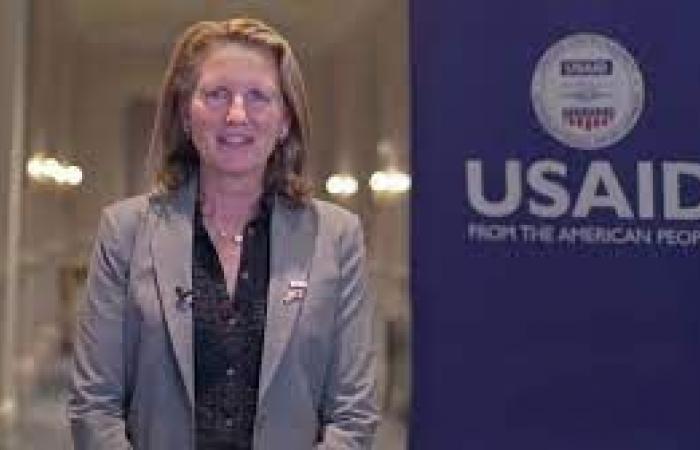Faced with serious global competition from China and the resurgence of Russia, the United States has been forced to review its diplomatic plan for Africa.
As part of this careful redrawing of their diplomatic map of the world, the deputy administrator of the United States, Isobel Coleman, is expected for lightning visits to two southern African countries, Botswana and Zambia, considered allies traditions of Washington.
According to a statement from the United States Agency for International Development (USAID), Ms. Coleman will participate in a series of engagements from June 24 to 27.
She also visited Mozambique last February.
For decades, USAID represented the penetration of American soft power into global diplomacy, and it still does today.
Ms. Coleman, a diplomat and author, was named USAID Deputy Administrator for Policy and Programming in November 2021. Her responsibilities include guiding the agency’s response to global crises and countering the influence of China and Russia, rivals of the United States.
With barely concealed dismay in Washington, these two emerging powers have been seen as the new diplomatic juggernauts around the world, particularly in Africa where there is no shortage of friends eager to welcome and entertain them at a gallop.
In recent years, diplomatic offensives from Beijing and Moscow have made significant inroads into Africa, where they have used development aid and investment as tools to court African governments in favor of trade and diplomacy, which which sounded the alarm in Washington and other Western capitals.
China’s trade flows with Africa, which are the largest in several years, have reached an impressive figure of 282 billion dollars in 2022, far exceeding those of the United States, whose trade deficit stood at 11 .7 billion in 2021, according to the Global Trade Tracker.
While Mr. Coleman’s role is to act as USAID’s policy ambassador on development and U.S. efforts to address the root causes of climate change and irregular migration from developing countries, The United States has made no secret of its intention to regain the diplomatic initiative in Africa, a continent that has gained economic weight in the eyes of other very important contenders thanks to its seemingly inexhaustible reserves of mineral and other resources.
Ms. Coleman’s stay in the two southern African countries will be a symbolic way of demonstrating that the United States’ role in Africa, including its security infrastructure, is far from having lost its value and relevance.
His stay in Gaborone includes participation in the African Chiefs of Defense (ACHOD) Conference, jointly hosted by the Botswana Defense Force and the US Africa Command.
ACHOD is an annual meeting of African chiefs of staff and other senior military officials from the continent, a platform the United States wants to use to show how close it remains to African militaries.
Mr. Coleman’s speech at the conference focused on the US government’s holistic approach to advancing strategic interests in partnership with African governments.
From Gaborone, Botswana, the Deputy Administrator will travel to Lusaka, Zambia, where she will speak with government officials and members of the private sector to strengthen the U.S. government’s commitment to Zambia.
Ms. Coleman will also launch Zambia’s National Global Food Security Strategy plan, highlighting USAID’s investments in the country’s food security and agricultural sector.
These investments build on USAID’s climate-smart approach to Zambia’s food security and resilience by integrating rural farming communities into growing regional and global markets for agricultural products, according to the release.
But all this is happening in the shadow of strained ties with South Africa, mainly but not exclusively due to Pretoria’s stance on the Gaza war.
Washington and Pretoria, strong allies on many issues of common global, regional and strategic interest in the past, suddenly find themselves on opposite sides in the Gaza debacle.
South Africa defended a case against “Israeli atrocities in Gaza” at the International Court of Justice, while the United States proverbially looked the other way, drawing outraged criticism from some of its loyal allies, including Egypt.
It all started earlier this year, when the United States expressed dissatisfaction with South Africa’s decision to host a Chinese frigate for training in South African waters.
US criticism did not stop the South African army from participating in a 10-day joint military exercise with Russia and China from February 17 to 27.
South Africa apparently ignored Washington’s concerns that the joint naval exercises constituted a “practical endorsement” of Russia’s invasion of Ukraine exactly two years earlier.
Experts believe that whatever happens between the West on the one hand and its powerful friends in the East, Africa could emerge from this “crazy race” for diplomatic attention as a continent brimming with hope for his future.
WN/as/fss/te/APA






